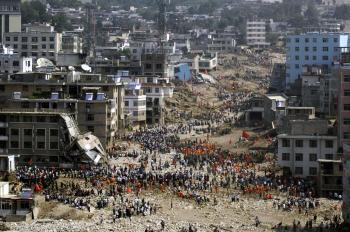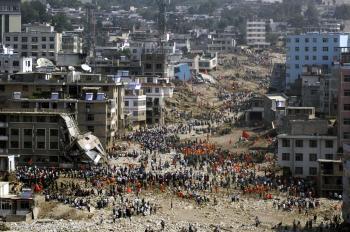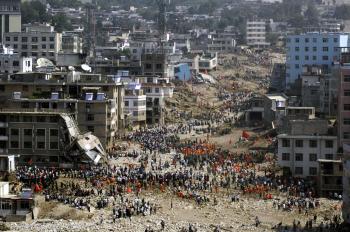After Calamitous Mudslide, Zhouqu Survivors Take Time to Reflect
The mudslide turned the former Shangri-la into a mass grave and a jumbled mess of debris and mud.

Rescuers search for survivors after a deadly flood-triggered landslide hit Zhouqu County, in Gansu Province on Aug. 9, 2010. AFP/Getty Images
|Updated:





